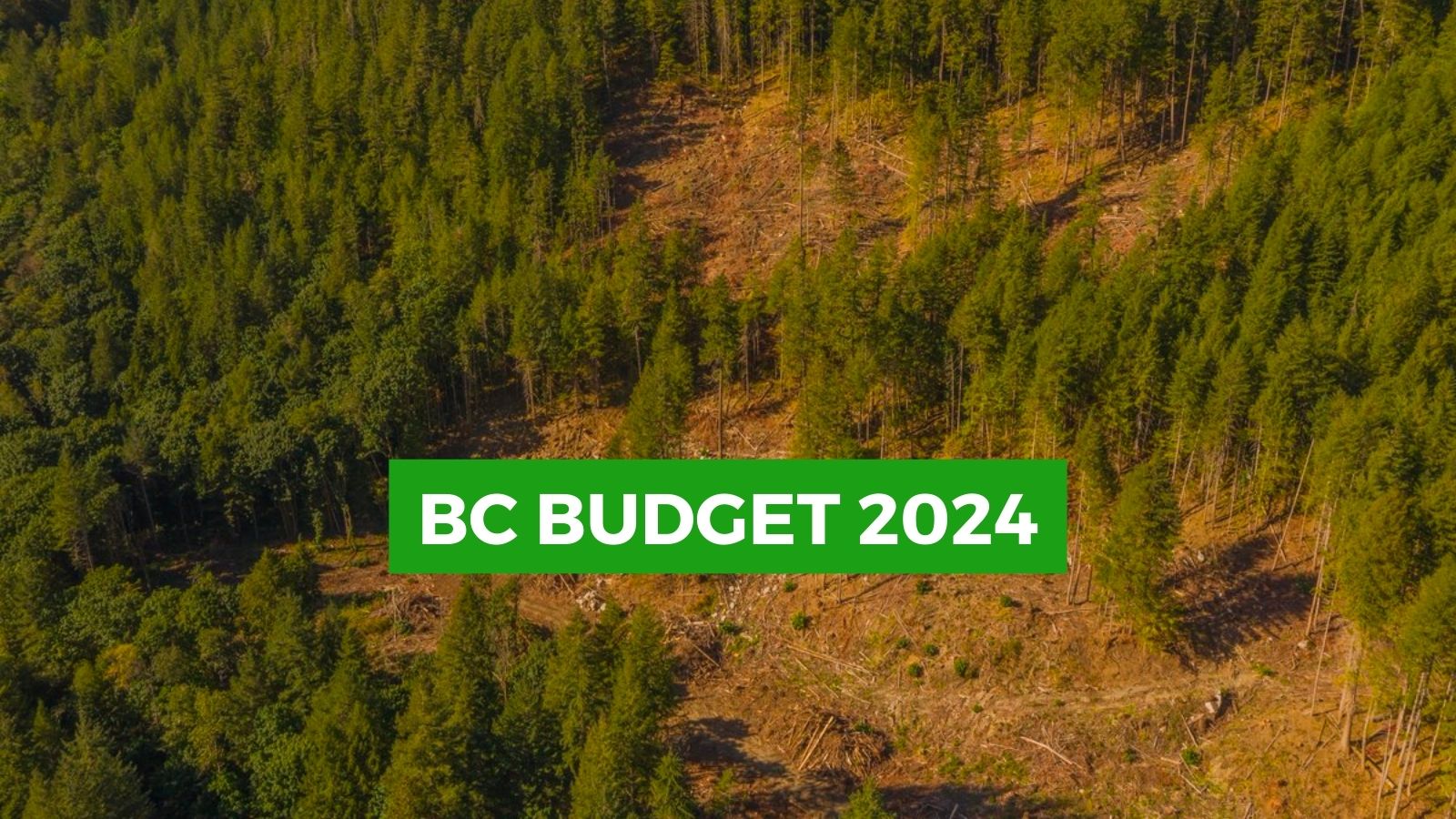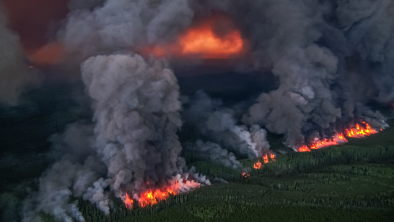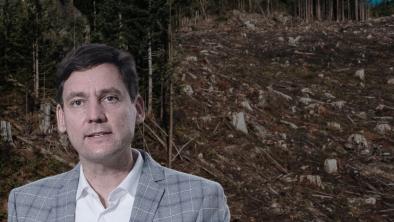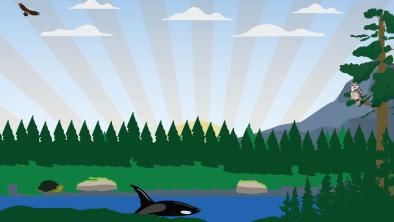Budget 2024 silent on environment, conservative on climate

Climate measures focus on reacting to disasters instead of bold emissions cuts, no new funding for biodiversity and conservation
VICTORIA / UNCEDED lək̓ʷəŋən TERRITORY – Mirroring the throne speech, Budget 2024 is quiet on the environment and climate change relative to the scale of these problems. As in past budgets, the focus is on responding to climate disasters as opposed to investing in deeper emissions cuts.
“Things like worsening floods and wildfires are costing us more, and the science tells us these costs will continue to balloon as long as carbon emissions remain where they are,” said Associate Director Torrance Coste. “While the BC NDP is paying the initial bills, they continue to drag their feet on measures to really rein in the most polluting sectors and prevent the most polluting projects.”
The Wilderness Committee is concerned that despite several new conservation initiatives announced by the BC NDP government in the past year, no additional funding is allocated to these programs from Budget 2024, with money instead coming from previously announced sources or future budget allocations.
“Anyone looking for a strong signal that the B.C. government is serious about protecting old-growth and biodiversity will need to look further than Budget 2024,” said Conservation and Policy Campaigner Charlotte Dawe. “The promised prioritization of ecosystem health and biodiversity and the protection of 30 per cent of B.C. by 2030 won’t be free. It’s frustrating there’s no new funding to transform land use away from the extraction-focused economic model that harms biodiversity and increases our vulnerability to climate disasters.”
Bright spots include increased incentives for heat pumps for low and middle income households, and modest budget increases for public transportation. However, increased capital spending for BC Transit and Translink will go mostly towards service increases as opposed to reduced fares to make climate-friendly transportation more affordable.
Alarmingly, overall revenues from natural gas are projected to increase, reflecting the growth of fossil fuel extraction the BC NDP government is facilitating, despite its promises to fight climate change. While total revenues are projected to rise, the province is projecting a 55 per cent projected drop in per-unit gas prices over the three-year fiscal period, meaning the province will receive less money per tonne for the same climate-wrecking fossil fuels.
“Ramping up emissions from the most polluting industry is bad for our future no matter what price fracked gas is selling for,” Coste said. “But the fact the B.C. government is chasing a gas boom despite not really knowing what the benefits to the province will be rubs salt in the wound.”
Finally, while the stipulation the carbon tax increase will be 100 per cent revenue neutral is understandable as an affordability measure, the Wilderness Committee argues more funding brought in by the price on pollution should be allocated to things that make a low-carbon lifestyle more affordable for more people.
“Everyone in B.C. deserves robust, low-fare or fare-free public transit, the ability to live in a walkable neighbourhood and buy food grown close to home — we can’t pay for those things with our rebate cheques, meaning the costs of fighting climate change continue to be passed on to individuals,” said Dawe.
The Wilderness Committee will continue to analyze Budget 2024, and advocate for stronger environmental protections and measures to rein in the fossil fuel industry towards the provincial election later this fall.
– 30 –
For more information, please contact:
Torrance Coste | Associate Director
250-516-9900, torrance@wildernesscommittee.org
Charlotte Dawe | Conservation and Policy Campaigner
778-903-3992, charlotte@wildernesscommittee.org


